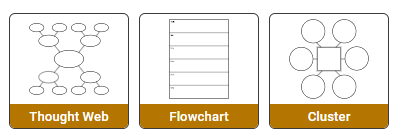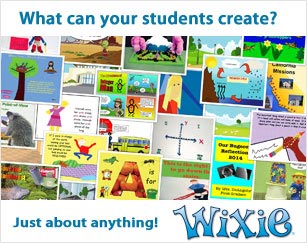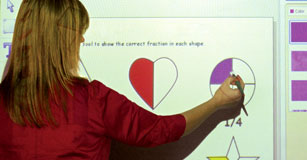The Case for Gaming in Learning
Taking a digital game-based approach to learning

The growth of gaming in the modern world is truly awe-inspiring with the gaming industry breaking its own records year after year. With sales of over 100 billion US dollars and over 2 billion gamers worldwide, digital games have become a phenomenon of epic proportions.
Historically, both digital and non-digital games haven’t been taken seriously during the learning process. They are often considered distractions or used during non-productive times during the school day. But now, many educational researchers, practitioners, and pundits are making the case for digital games as potentially powerful learning tools.
Games provide students with an opportunity to perform meaningful actions in a learning environment and the use of games to improve or enhance student learning is commonly called game-based learning. Here are a few reasons why you should consider a digital game-based approach to learning.
Learner Ownership
Digital games are highly interactive forms of media that put players in control of their own experiences. Games also provide constant feedback and allow players to learn through both their successes and failures while having fun.
Every choice, every mistake, every “aha” moment is accomplished with the players at the helm. When Sawyer and colleagues investigated the impact of student agency on learning and problem-solving behavior in a game-based learning environment. They found that students showed significant learning gains when offered the freedom and control to learn on their own with some guidance. (Sawyer et al., 2017)
Effective Content Learning
A game-based approach to learning uses games to help students learn specific content or skills. The subject matter and storylines present in games are diverse, allowing virtually any type of academic content to be explored or skill to be mastered.
A meta-analysis of research done by Wouters et al. (2013) found that training with serious games is more effective for developing knowledge and supporting its retention than more traditional methods of instruction like lecture or drill. Research has also shown that well-designed games help students develop investigative, critical thinking, and problem-solving skills. (Clark et al., 2017)
Incubators for Soft Skills
Quality digital learning games also promote the development of soft skills, or the skills viewed as crucial in order to thrive in the modern and future world. Educational visionaries like Sir Ken Robinson, Tony Wagner, and Ian Jukes as well as business leaders like Elon Musk, Tim Cook, and Warren Buffett all agree that soft skills are catalysts for success.
Through gameplay, students can develop valuable soft skills such as problem-solving, communication, perseverance, strategic planning, information processing, and adaptability, to name a few. Games may be a proving ground for the next CEO, social activist, or President of the United States.
The Potential is Still Evolving
There are literally thousands more research studies, books, articles, and reports like Learning with Digital Games that examine the effectiveness of games during the learning process. Some of these sources are research-based; some are first-hand experiences or accounts, while others are formed on opinions or even sophistry.
Today’s generations have become experts at analyzing gameplay, interpreting storylines, and ingesting raw game data. While the truth about the potential of game-based learning and digital game-based learning is still evolving, both parents and educators could take advantage of gaming’s popularity and positive attributes to turn learning into an epic journey for our children.
References
Clark, D., Tanner-Smith, E., Hostetler, A., Fradkin, A., & Polikov, V. (2017). Substantial integration of typical educational games into extended curricula. Journal of the Learning Sciences. https://dx.doi.org/10.1080/10508406.2017.1333431
Jukes, I., McCain, T., & Crockett, L. (2010). Understanding the digital generation: Teaching and learning in the new digital landscape. Kelowna, British Columbia, Canada: 21st Century Fluency Project.
Sawyer, R., Smith, A., Rowe, J., Azevado, R., & Lester, J. (2017). Is more agency better? The impact of student agency on Game-Based Learning. The IntelliMedia Group. Retrieved from: https://www.intellimedia.ncsu.edu/wp-content/uploads/Sawyer-AIED-2017.pdf.
Thangagiri, B., & Naganathan, R., (2016). Online educational games-based learning in Disaster Management Education: Influence on educational effectiveness and student motivation. Eighth International Conference on Technology for Education.
Wouters, P., van Nimwegen, C., van Oostendorp, H., & van der Spek, E. D. (2013, February 4). A Meta-Analysis of the Cognitive and Motivational Effects of Serious Games. Journal of Educational Psychology. https://dx.doi.org/10.1037/a0031311










